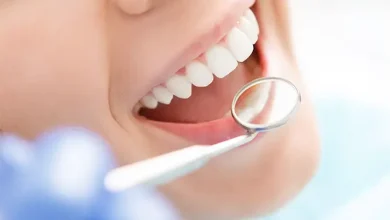Managing Stress for Better Overall and Oral Health

Nurturing Overall Health: The Impact of Stress on Oral Health
Stress is a common element in our lives, emerging from work pressures, health worries, and other stressors that significantly affect our overall well-being. If left unchecked, chronic stress can lead to serious conditions like heart disease, diabetes, and depression, and it also has a damaging effect on oral health, increasing the risk of gum disease, teeth grinding, dry mouth, and cavities. The link between stress and oral health is important to explore:
Exploring the Connection Between Stress and Oral Health
The link between high stress levels and poor oral health is strong. Chronic stress can worsen periodontal (gum) disease, which damages the gums and bone around the teeth. Stress weakens the immune system, making the body more vulnerable to the oral bacteria that cause gum inflammation, leading to symptoms like bleeding, swelling, receding gums, and eventually tooth loss if unchecked.
Stress-related issues such as teeth grinding (bruxism), mouth ulcers, and dry mouth can lead to cavities and tooth decay, showing how mental strain affects our entire body, including our oral health.
However, proactive lifestyle changes can help manage stress and strengthen overall health. Here are some effective strategies:
Effective Strategies for Managing Stress
Relaxation Techniques
Incorporating daily relaxation practices like breathwork, meditation, yoga, or progressive muscle relaxation for at least 10-15 minutes can reduce cortisol, ease mental tension, and lower inflammation that contributes to gum disease. Apps and tools that offer guided sessions make starting easier, and spending a few minutes outdoors or practicing deep breathing can have noticeable benefits.
Adequate Sleep
Getting 7-9 hours of sleep each night is crucial as it restores both body and mind. Lack of sleep can impair the body’s healing processes and weaken the immune system, increasing the risk of gum disease. Establish a consistent sleep routine and create a calming bedtime ritual, and seek medical advice if you suffer from ongoing sleep issues like insomnia.
Regular Exercise
Engaging in regular physical activity, such as walking, swimming, cycling, or strength training, not only improves physical health but also enhances mental well-being. Exercise helps reduce stress, relieve physical and mental tension, boost circulation, and stimulate saliva production, which helps clean the mouth.
Nutritious Eating Habits
Eating a balanced diet rich in antioxidants, quality proteins, healthy fats, and anti-inflammatory foods is crucial. Avoid sugary and acidic foods that damage tooth enamel, and drink plenty of water and herbal teas. Foods rich in vitamins C, D, and E help combat stress at the cellular level.
Regular Dental Cleanings
Visiting a dentist every six months for cleanings is essential for preventing plaque and tartar buildup. Discuss any symptoms like teeth grinding or dry mouth with your dentist. Regular cleanings prevent expensive dental procedures later on.
Address Underlying Health Concerns
Chronic stress might stem from unresolved health issues such as diabetes, eating disorders, or depression, which also affect oral health. Comprehensive healthcare management is vital for reducing systemic inflammation and related risks.
Eliminate Unhealthy Habits
Quitting smoking, limiting alcohol, and avoiding illegal substances are crucial for overall well-being. Nicotine and alcohol can cause gum recession, dry mouth, and tooth discoloration, while caffeine can contribute to teeth grinding.
Relax Facial Muscles
Be aware of facial tension during stressful times and actively relax your jaw muscles to prevent damage from clenching and grinding. Consider using a night mouth guard to protect your teeth.
Ensure Adequate Vitamin D Intake
Vitamin D deficiency can lead to inflammation, gum disease, and bone loss. Check your vitamin D levels and consider supplements if necessary. Spend time in the sun and eat vitamin D-rich foods like salmon and fortified yogurt.
Explore Relaxation Supplements
Talk to your healthcare provider about anti-anxiety supplements like chamomile or magnesium, which can help reduce stress. Avoid supplements like valerian that may worsen teeth grinding, and consider melatonin to improve sleep quality.
Maintain Good Oral Hygiene
Keep up with daily oral hygiene by brushing twice a day with fluoride toothpaste and flossing daily. Use an antibacterial mouthwash to reduce bacteria and prevent bad breath.
Cultivate a Supportive Network
During stressful times, lean on family and friends for support. Expressing emotions rather than bottling them up can provide relief and perspective.
Concluding Thoughts
This article underscores the deep connection between mind and body. By mastering stress with lifestyle adjustments and self-care routines, you can protect your oral health even during stressful times. Small, consistent efforts to care for your mind and body can build resilience and enhance well-being.




